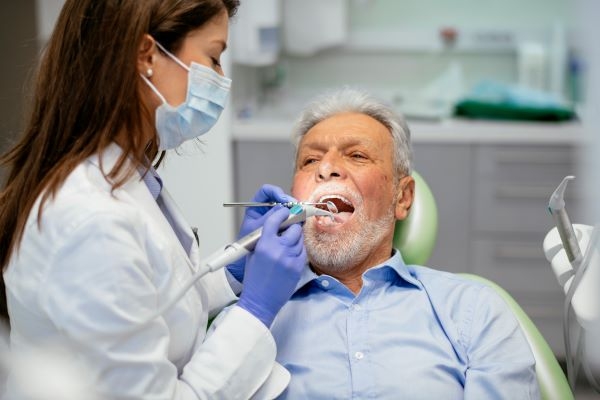-
With our smartphones always on hand, it sometimes feels as though a diagnosis is simply a Google search away.
But if you’ve ever googled ‘persistent headache’ or ‘niggling cough’ and been confronted with the possibility it may be a sign of a life-threatening illness, you’ll know why Dr Google isn’t always helpful.
Australians are spending more time online than ever before. In fact, the latest Medibank Better Health Index shows 18-49 year olds are spending an average of 26.5 hours a week online. And a 2014 Royal Australian College of General Practitioners survey, almost half (44%) of all internet users surveyed sought health information online at some time in the month before.
From symptom checkers, to the latest in treatment, it’s now instinct for many of us to turn to the internet for health information and self-help. But is it hurting or helping us?
The rise of cyberchondria
With a myriad of health advice now available at our fingertips, we’re seeing an emergence of a brand new phenomenom - cyberchondria.
Cyberchondria is a term coined to describe certain symptoms of hypochondria associated with the internet1, for example worrying about having a disease after reading about it on the internet, or searching for hours about diseases and symptoms.
With serious health conditions like cancer showing up in health information on a regular basis, it’s not surprising that the internet can trigger anxiety or worry about your health. It’s one of many good reasons a trusted health professional, like your GP, should be your first port of call.
READ MORE: Am I just worried? Or is it anxiety?
Are you a cyberchondriac?

-
Putting your health in the hands of the internet
We’re all guilty of Googling symptoms from time to time. And we may think a quick online search will save us time and money. But studies suggest that self-diagnosis via symptom checker sites could be doing us more harm than good.
It should come as no surprise that symptom checker sites can be inconsistent and even incorrect with their diagnoses. In fact, a 2015 study published in the British Medical Journal confirmed that merely a third of symptom checkers came back with the correct diagnosis, and only half included the right diagnosis in their top three suggestions2.
READ MORE: Can social media ruin your social life?
Can Dr Google help sometimes?
With many of us turning to the internet as our first port of call, the news isn’t all bad. A recent study published in the Medical Journal of Australia examined the experience of patients who had googled symptoms before presenting to two large emergency departments in Melbourne3.
While the study found that searching for information online increased some patients’ level of anxiety, it also helped to improve communication between doctors and patients. With study participants reporting they felt they could ask more informed questions, understand their doctor and communicate effectively.
Commenting on the topic, Medibank Clinical Director Dr Sue Abhary, said that while we all need to be actively engaged in managing our health, it’s important you don’t replace a proper diagnosis from Dr Google with one from a health professional.
“There is some really good health information available online but not all sources are high quality or reliable. It’s worth carefully considering who authored the information. You also need to be careful that you aren’t misinterpreting information, or just considering the worst possible diagnosis.
The best step is to go to your GP with any information and concerns you have. Then together you can discuss your symptoms and health needs and decide on the best course of treatment.”
1. Starcevic V., 2017, Cyberchondria: Challenges of Problematic Online Searches for Health-Related Information, Psychotherapy and Psychosomatics, https://www.karger.com/Article/FullText/465525
2. Semigran, et al., 2015, Evaluation of symptom checkers for self diagnosis and triage: audit study, British Medical Journal, http://s3.amazonaws.com/media.wbur.org/wordpress/15/files/2015/07/BMJ-Embargoed-Symptom-Checker-study.pdf?con&dom=newscred&src=syndication
3. Cocco et al., 2018, Dr Google in the ED: searching online for health information by adult emergency departments, The Medical Journal of Australia, https://www.mja.com.au/journal/2018/209/8/dr-google-ed-searching-online-health-information-adult-emergency-department
-
Do you need an electric toothbrush?
Which toothbrush scrubs up best?
-
Dietitian, nutritionist or naturopath: What’s the difference?
Who should you see for professional dietary advice?
-
5 ways to eat healthy while travelling
Come home feeling refreshed, fit and energised.
-
How often should you get your teeth cleaned?
We spoke to Medibank Members’ Choice Advantage dentist Dr Jonathan Cichero to find out.
-
Daily habits for good oral health
Do you really need to floss? Is an electric toothbrush better than a manual one? Find out which habits to make (and which ones to break) for better oral health.
-
How to conquer your fear of the dentist
Dr Merrilyn Hooley's tips for a less stressful dental appointment.
Subscribe to receive the best from Live Better every week. Healthy recipes, exercise tips and activities, offers and promotions – everything to help you eat, move and feel better.
By clicking sign up I understand and agree to Medibank's privacy policy





